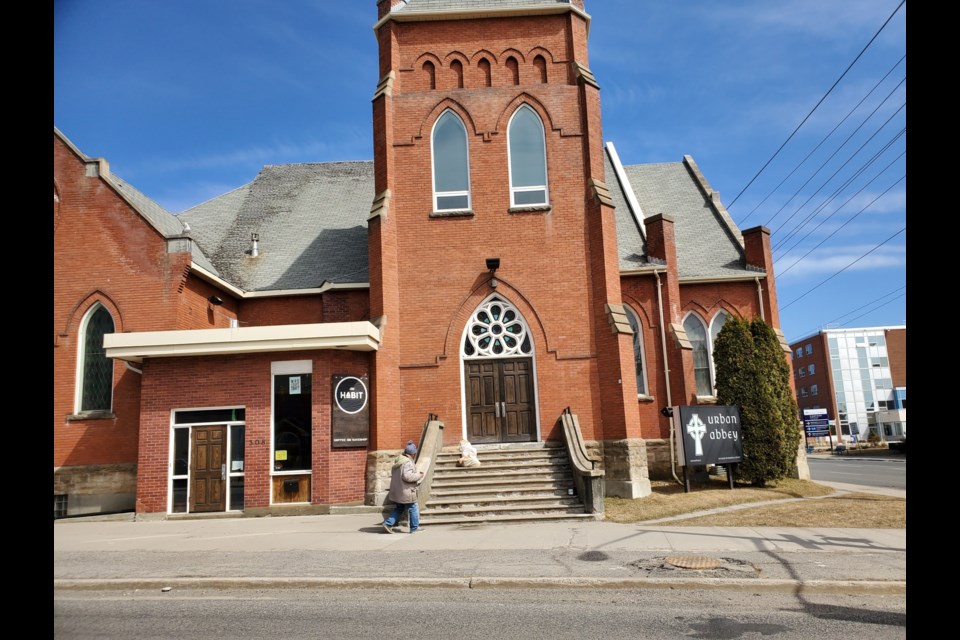THUNDER BAY — Thunder Bay's homeless have a place to recover safely, and a place to self-isolate, if they fall ill during the COVID-19 pandemic.
Organizations including St. Joseph's Care Group (SJCG), Urban Abbey, the Thunder Bay District Health Unit, the Thunder Bay Drug Strategy and others have collaborated to establish an emergency isolation shelter and an illness shelter in the city.
The isolation shelter is in a hotel, where individual rooms have been set aside for those who may have been exposed to the virus.
The illness recovery shelter, for people with other health issues, is in the Urban Abbey on Red River Road.
Nancy Black, vice-president of addictions and mental health at SJCG, says the need for social distancing during the pandemic puts the homeless in a difficult situation.
Black said local agencies and organizations who work with marginalized groups recognized at the outset that measures needed to be put in place for these people immediately.
They decided on a two-pronged approach.
"The first was to increase surveillance, to look for people who are sick and to provide them with support. We had the idea to create an illness shelter, so we had one doorway for anyone to go to, to receive the health care they needed, as well as shelter," Black explained in an interview with Tbnewswatch.
The second part of the plan was the creation of an isolation shelter, "a space that was safe for folks who either may have been exposed, or may be 'probable' in terms of having the COVID-19 virus," she said.
Urban Abbey was willing to allocate space for the illness shelter.
So far it has accommodated seven individuals, whose stays have ranged between several days and several weeks as required.
None of the people staying in the facility have been diagnosed with COVID-19. Everyone is screened by a mobile nursing team from SJCG.
Urban Abbey spokesperson Scotland Morrison said clients who stay in the facility are provided with meals and a variety of other supports.
"We've got people who are doing puzzles with them, hanging out with them, spending time with them so that they're not alone. There's actually a little bit of a community around them so they're not so lonely," Morrison said.
Black said agencies came together to provide resources for the shelter over a period of less than 72 hours.
St. Joseph's Foundation donated beds, while other groups contributed personal protective equipment and other supplies
Officials won't identify the hotel that agreed to serve as an isolation shelter by making some of its rooms available, citing the need to control access to the site.
They say it's important that everyone using the service has been properly evaluated and screened, so that all their needs can be provided for.
Cynthia Olsen, coordinator of the Thunder Bay Drug Strategy, said meals and support services match each individual's requirements.
They stay in their rooms for 14 days, or until COVID-19 test results are returned.
"There is no face-to-face contact other than if there is a medical check, which is currently provided by the SJCG outreach team. All communication is either through the phone or through the door," Olsen said.
About 25 individuals have been in isolation in the hotel for various periods since the program was initiated two weeks ago.
When they leave, whether or not they require medical care, they are not left on their own.
A team will link them with the appropriate health care providers, social services or other agencies beyond the isolation shelter as needed.
Black credits the Thunder Bay District Health Unit for being a key driver in ensuring the provision of appropriate infection control measures and surveillance for COVID-19.
Olsen described the two projects as "a real collaborative effort" of multiple organizations that came up with the necessary funding and services.
"Thunder Bay, as always, stepped to the plate. It does take a village in terms of caring for all of us. We knew that by caring for those who are most vulnerable, we would ensure the safety and wellness of the entire community, " Black said.
Local officials have received numerous inquiries from communities in northwestern Ontario interested in establishing similar facilities.
